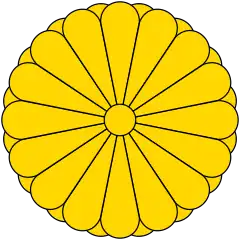Netto-uyoku
Netto-uyoku or net uyoku (ネット右翼, lit. 'Internet rightists'), often shortened to neto-uyo (ネトウヨ), is the term used to refer to Japanese netizens who espouse ultranationalist far-right views on social media. Netto-uyoku is evaluated as having similarities to Western right-wing populism or alt-right in many ways.[1][2][3][4][5]
| Part of a series on |
| Koreans in Japan |
|---|
|
Origins
The origins of Japan's "cyber nationalist phenomenon" are unknown. But it can be traced back from the 1990s during the Lost Decades,[6] when significant socioeconomic changes from the bubble asset led to general distrust and decline of national morale within Japanese society.[7][8] Nationalism would become more prominent in the early 2000s when North Korea officially admitted to abducting Japanese citizens[9] and the introduction of the Korean wave in Japan.[10] In an attempt to lash out from the constant frustration and social anxiety, combined with the mainstream media avoiding coverage critical of South Korea and Koreans, netizens displaced their xenophobic and ultranationalistic attitudes through online bulletin boards and forums, as the Internet is free from the constraints of official policy or political correctness.
Views
| Part of a series on |
| Conservatism in Japan |
|---|
 |
The netto-uyoku have viewpoints that are emboldened via interacting with other people who share the same perspective.
They generally express support for historically revisionist views that portray the former Empire of Japan in a positive light, while maintaining negative sentiments towards countries that have diplomatic tensions with Japan, specifically North Korea, South Korea, China (anti-Chinese sentiment) and sometimes the United States of America. Netto-uyoku express hostility towards the local immigrants and ethnic minorities from those countries, and also promote patriotism within Japanese schools by advocating the requirement for students to sing the national anthem before class.
Domestically, the netto-uyoku express criticisms against the left-wing and centre-left parties (Japanese Communist Party and Constitutional Democratic Party of Japan) and the Japanese mainstream media, which they accuse of having a liberal bias.[11]
Statistics
Japanese critic and writer, Tsunehira Furuya describes the netto uyoku as a "new breed of neo-nationalists who interact almost entirely within their own cyber community, shut off from the rest of society". According to Furuya, "the average age of Japan's Internet right-wingers is around 40. Some 75% of them are male", and adds that although active on the web, they lack institutional political representation offline. This leads them to be more active online, in order to back the far-right elements of the ruling Liberal Democratic Party, especially those under the administration of former Prime Minister Shinzo Abe.[12]
Rise of Trumpism
The rise of Trumpism among the netto-uyoku community has been observed since September 2020, two months prior to the 2020 United States presidential election.[13] Some Japanese political commentators even theorized that Shinzo Abe's resignation as Prime Minister in September 2020 to be a juncture for netto-uyoku to shift their central figure to Donald Trump as a "political upgrade" in promoting diplomatic policies which embody anti-Chinese sentiment.[14] As such they began spreading Trump's conspiracy theories in an attempt to overturn the 2020 American presidential election.[15]
See also
Notes
References
- Fujioka, Brett (August 7, 2019). "Japan's Cynical Romantics, Precursors to the Alt-Right". Tablet Magazine. Retrieved December 3, 2021.
- Shinji Higaki; Yuji Nasu, eds. (2021). Hate Speech in Japan: The Possibility of a Non-Regulatory Approach. Cambridge University Press.
- Patrik Hermansson; David Lawrence; Joe Mulhall, eds. (2020). The International Alt-Right: Fascism for the 21st Century?. Routledge. ISBN 9780429627095.
... Specifically, to a Japanese nationalist movement that predates the Alternative Right and has numerous striking parallels; the Netto Uyoku ("the online right"). Both the Alternative Right in the US and Europe and the Netto Uyoku emerged ...
- John Lie, ed. (2021). Japan, the Sustainable Society: The Artisanal Ethos, Ordinary Virtues, and Everyday Life in the Age of Limits. Univ of California Press. p. 98.
- Cecilia Menjívar, Immanuel Ness, ed. (2019). The Oxford Handbook of Migration Crises. Oxford University Press. p. 203.
- Sakamoto, Rumi. "'Koreans, Go Home!' Internet Nationalism in Contemporary Japan as a Digitally Mediated Subculture". The Asia Pacific Journal: Japan Focus. The Asia Pacific Journal. Retrieved August 28, 2023.
- Major incidents during the 1990s, such as the Tokyo subway sarin attack and the Great Hanshin Earthquake were also contributing factors in de-motivating general Japanese society.
- Kawamura, Satofumi; Iwabuchi, Koichi (2022). "Making neo-nationalist subject in Japan: The intersection of nationalism, jingoism, and populism in the digital age". Communication and the Public. 7 (2022): 2. doi:10.1177/20570473211073932. S2CID 246629808. Retrieved August 28, 2023.
- "Xenophobia finds fertile soil in web anonymity". The Japan Times. January 8, 2013.
- Mikalajūnaitė, Ugnė (May 29, 2015). "Anti-Korean Wave and Far-Right Wing Nationalism in Japan". Leiden University: 7. Retrieved August 28, 2023.
- Kaigo, Muneo (2013). "Internet Aggregators Constructing the Political Right Wing in Japan". eJournal of EDemocracy and Open Government. 5 (1): 59–79. doi:10.29379/jedem.v5i1.184. ISSN 2075-9517.
- "The Roots and Realities of Japan's Cyber-Nationalism". January 21, 2016.
- Kinoshita, Chigaya (December 22, 2020), 限界ネトウヨと右翼ヘゲモニーの終焉, Asahi Ronza (in Japanese), retrieved February 16, 2021
- 古谷, 経衡 (December 17, 2020), 「勝ったのはトランプ」と一部日本人までが言い張る理由, Newsweek (in Japanese), retrieved February 16, 2021
- 倉山, 満 (December 14, 2020), ネトウヨ芸人も安倍信者も、社会から消えてもらうのみ, Yahoo News (in Japanese), archived from the original on December 14, 2020, retrieved February 16, 2021
External links
| Library resources about Netto-uyoku |